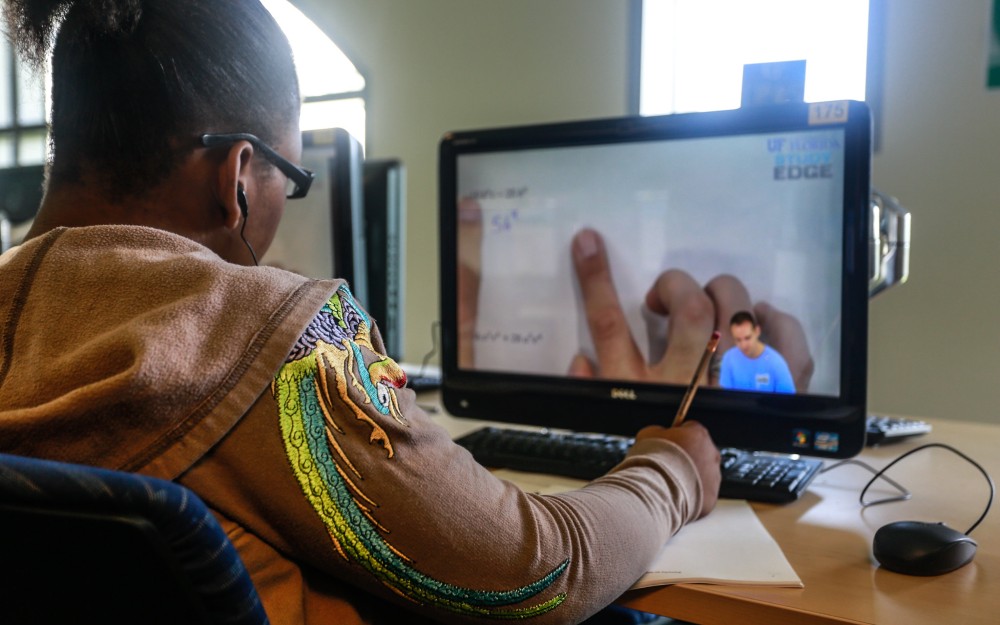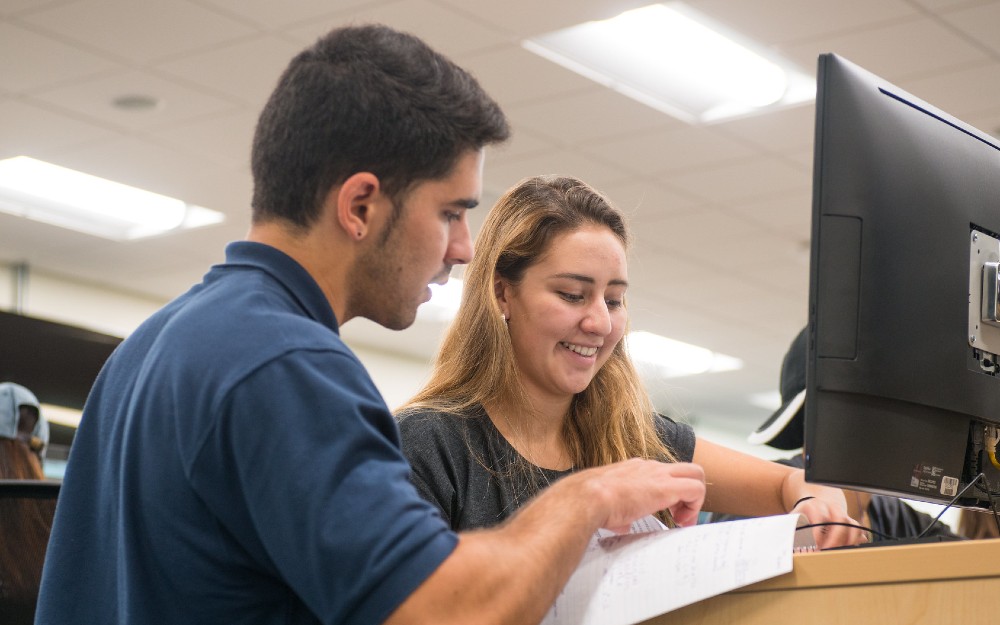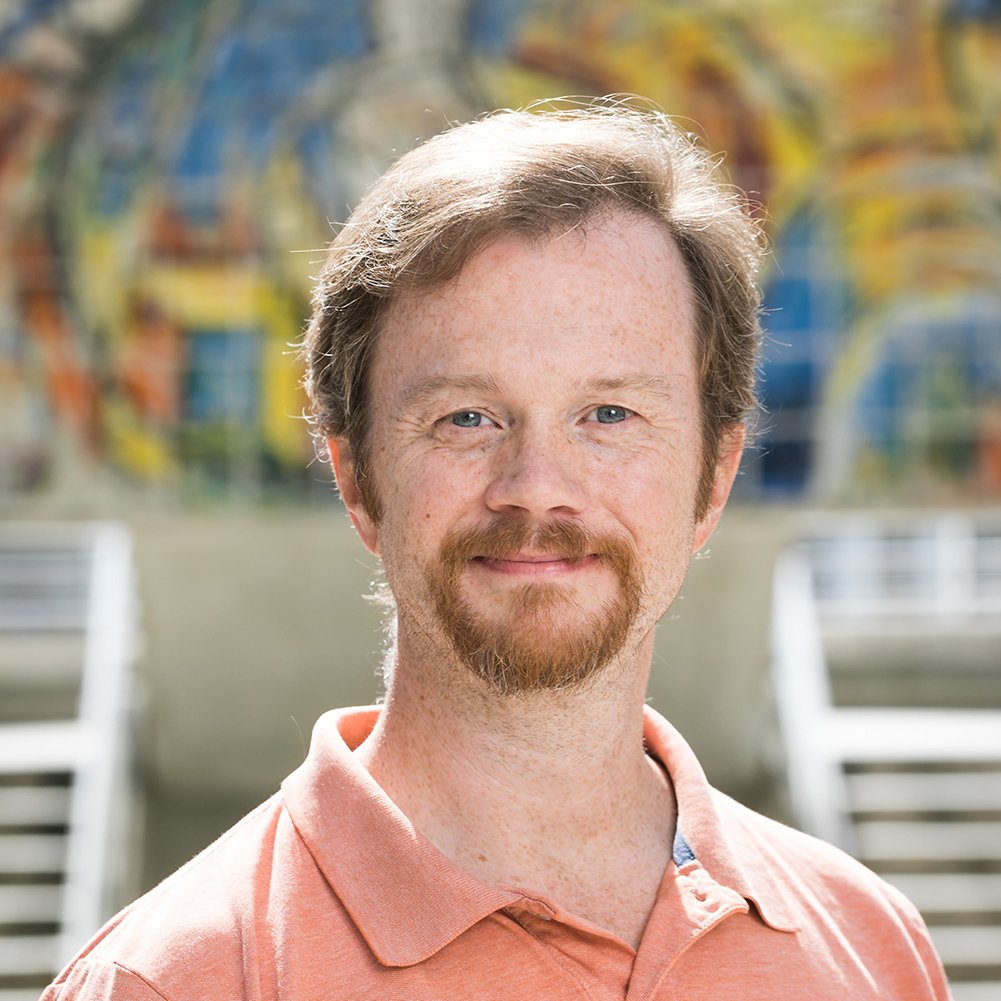Our mission is to identify, adapt, develop, evaluate and implement evidence-based instructional practices and related measures in order to advance students’ learning of mathematics. The evaluation process serves the dual purposes of providing critical feedback to mathematics instruction and creating mathematics education research products.
This initiative is intended to improve instructional practices in mathematics, generate knowledge about how students learn mathematics, and identify effective practices in the teaching of mathematics.
Our center is rooted in the Engage to Excel (President's Council of Advisors on Science and Technology, 2012) report’s call for a "national experiment in postsecondary mathematics education to address the mathematics preparation gap" and thus has the potential to contribute to the national mathematics discussion. This is crucial given our student demographics, which represent our nation’s future.
We are is intentionally positioned to create critical mathematics education knowledge, attract significant external funding and become the national leader in mathematics education research. This research, and related graduate training, will be led by our center and will leverage institutional resources including the STEM Transformation Institute and Center for the Advancement of Teaching. We provide stewardship in instructional practices and assessments for faculty, and support this through faculty development across multiple courses.
Initiatives
We engage in support of first-year mathematics courses at FIU by coordinating activities in college algebra, precalculus and calculus.
Mastery Math Lab
The Mastery Math Lab is improving student performance through evidence-based teaching techniques. Students in intermediate and college algebra courses attend regular tutoring sessions with Learning Assistants - peer mentors who help navigate the rigors of math. We offer an alternative to traditional lecture learning, making classwork more relatable.

Modeling Practices in Calculus
The Catalyzing Change in Calculus Project is implementing Modeling Practices in Calculus, a student-centric curriculum in which students emulate the practices of mathematicians in the classroom to learn both Calculus I and Calculus II. The curriculum emphasizes active learning in the classroom and integrates asset-based and culturally responsive practices developed over FIU's 15-year history of transforming introductory STEM courses. The research design features a randomized controlled trial design as well as longitudinal measures on student success, including tracking transfer students.

Our Team

Edgar Fuller, Director
As director of the Center for the Transformation of Teaching Mathematics, Edgar Fuller works with the dean of the College of Arts, Sciences & Education and stakeholders in the Department of Mathematics and Statistics, the Center for the Advancement of Teaching, the STEM Transformation Institute and other FIU units in an effort to implement innovative student experiences in 1000- and 2000-level mathematics courses.
Dr. Fuller develops strategic initiatives for implementing curricular programs that use evidence-based methods to improve student learning. He then works with faculty and staff to coordinate, design, implement and assess these interventions and initiatives.
Dr. Fuller conducts research in mathematics education focusing on active learning strategies and their relationship to student classroom experience, self-efficacy in mathematics and STEM persistence. His mathematics research is based in complex networks and data science, where he uses machine learning tools to identify structure in nanoscale neural connectomes.
Advisory Board
Our advisory board evaluates ongoing projects, reviews proposals for course and program changes, and provides recommendations to the director.
The board includes of the dean of the College of Arts, Sciences & Education; the chair of the Department of Mathematics and Statistics; the director of the STEM Transformation Institute; the director of the Center for the Advancement of Teaching; course coordinators; representatives from the College of Business and College of Engineering & Computing; and two at-large members appointed by the dean of the College of Arts, Sciences & Education.